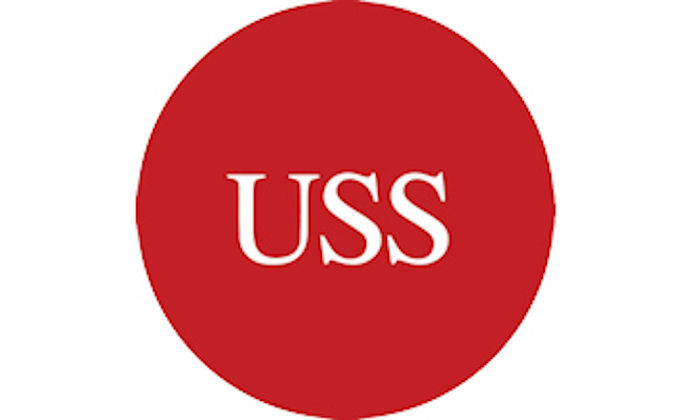Message from the USS
28 Jun 2018
An update from the USS on cost sharing and what it means for you

Our most recent update on the 2017 valuation looks at the establishment of the Joint Expert Panel (JEP) by our stakeholders, and the separate ‘cost sharing’ process that is being followed at the same time.
The Joint Expert Panel
Members may be aware that University and College Union (UCU) and Universities UK (UUK) have established a Joint Expert Panel (JEP) to assess the scheme’s latest valuation.
Joanne Segars OBE has been appointed as Chair, and UCU and UUK have both appointed three members each.
We are engaging constructively with the panel, which is expected to report back to UCU and UUK in September 2018. UUK and UCU will then consider the panel’s recommendations in the scheme’s formal negotiating forum, the Joint Negotiating Committee (JNC), before deciding on any changes to benefits and/or contributions.
The cost sharing process
As we explained to members last month, the trustee must complete the current valuation process as set out under the scheme rules, which provide for the ‘cost sharing’ process (Rule 76.4-8) to take effect.
Under cost sharing, any increase to the contribution rate required by the trustee (that cannot otherwise be addressed by a JNC decision on benefit and/or contributions changes*) is split 35:65 between members and employers respectively.
Why cost sharing?
The cost sharing process will run in parallel with the work of the JEP and the implementation of any subsequent JNC decision. There are several reasons why this is being done at the same time, rather than after the JEP has reported back to UCU and UUK, as follows:
1. The law
Universities Superannuation Scheme Limited, as the trustee, has a statutory obligation to complete the 2017 valuation and the deadline for doing so will pass on 30th June 2018. We will not meet this deadline and the Pensions Regulator has made clear to USS and its stakeholders that the trustee is expected to present a credible plan for completing the process as soon as reasonably possible.
2. The scheme rules
The cost sharing process is set out under the scheme rules as a pre-determined process for dealing with the JNC not reaching a decision on benefit and/or contribution changes. The concept was first introduced into the rules following the 2011 valuation and the current wording was introduced after the 2014 valuation – both at the request of stakeholders (via the JNC).
3. The timescales
Depending on the complexity, implementing scheme changes typically takes up to 12 months to complete from the point of a JNC decision (due to the consultative procedures and technical processes involved). The JEP is expected to produce a report to UCU and UUK in September 2018, which is expected to inform subsequent JNC discussions in autumn/winter. Any changes to benefits and/or contributions arising from a JNC decision would be implemented by USS as soon as practically possible, but would most likely take up to 12 months to introduce. This would be well beyond 1 April 2019, which is the timescale required to complete the current valuation (see point 1) under the cost sharing process (see point 2).
4. The cost
Based on an extensive assessment, and the feedback it received from stakeholders, the trustee has concluded that the combined contribution rate (required to repair deficits in funding for pensions already earned and offer the current level of benefits in future) has increased from 26% of payroll today to 37.4%. The longer this is left unaddressed, the greater the potential funding challenge could be for employers and members in the future.
What happens next?
As we explained to members last month, the rules dictate that the offer of the match will automatically end from 1 April 2019. This would reduce the combined contribution rate required from 37.4% to 36.6%**. However, the trustee and its stakeholders are actively considering the actual changes that will be applied from 1 April 2019, and there will be a consultation with affected employees and their representatives on these matters in late summer this year.
A further update to members on the expected impact on contributions from 1 April 2019 is expected in late July.
What has happened?
The pension landscape has shifted dramatically in recent years: in 2006, there were almost 3,500 defined benefit (DB) pension schemes in the private sector still open to new members.
Fast forward 10 years, and USS is one of fewer than 700 private, funded schemes that remain open.
In its recent White Paper, Protecting defined benefit pension schemes, the Government acknowledged that ‘increasing longevity, a prolonged period of low interest rates, and expected low future investment returns’ means that defined benefit schemes are currently ‘more expensive to maintain than was anticipated when they were set up’.
We’ve seen the cost – that is, the level of contributions which, along with expected investment returns, is needed to fund a set level of benefits – change significantly.
For any open defined benefit pension scheme to be demonstrably sustainable (as is required, by law, with a valuation), its contributions, investments and benefits need to be in balance with the financial support the sponsoring employers can provide.
More information on the 2017 valuation – including updates, blogs, Q&As, video guides, and official documents – is available on our website.
For a glossary of our terms please see more information on our important terms page.
* To the extent that this is not addressed by a decision of the JNC to reduce employer contributions into the USS Investment Builder above the salary threshold, among other potential changes.
** Subject to any decision of the JNC on the rate of employer contributions above the threshold, among other potential changes.
